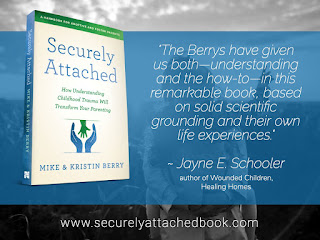- This book is practical. Indirectly you learn the mindset of a parent of a child from a hard place, otherwise known as trauma, and are taught the research best practice concepts for successful interaction with adopted or foster children.
- This book is the steps to put in place mentally, emotionally, and physically in parenting a child or children from hard places. It is practical. Reading it bit by bit would give you hope even if you take months to get through the whole book.
- It is rare to find a book on how to help a child dealing with trauma that addresses multiple children in the home. Many practices focus on helping ONE child with their scenario.
- Each chapter ends with: What Now? and then a Remember bullet point list. These tasks suggest you journal, chat with a friend, create a plan, basically a task or aspect of life to think through in response to this chapter's content.
- This book is for the parents or caregivers IN the trenches, if someone who has not experienced children from a hard place, it might help, but the reader might not grasp what life is like fully from this book. Kristin's book is a better story of living with trauma in the midst of family and life.
Wonders
The book is an amazing practical resource. I'm trying to think back through when I was hopeless, desperate, and needed resources, I've read and been educated by the same resources listed in their notes section and then some. And I am trying to think through some of the biggest challenges that I needed support and resources to cope with. This book is an easy read, as it is well written, with a good balance of facts, experience, and stories. It is 285 pages and builds a great foundation for the reader.
- A few practical concerns I've faced that I wish had been brought up in the book or if mentioned, most people need more information.
- Church- attending, how to educate your leadership, connection, life group participation, resources available to support your family attending church.
- Documentation: yes save everything. But who do you share your notes/journals with?
- Navigating support systems, what to seek, what to ask, what to share...like SSi, Voc Rehab, specialty care, developmental pediatricians.
- Foster children's contact and visits with bio family members. Preparing your child, the child's debriefing, gifts, holidays, etc.
- To expand the above- kinship care, when you aren't in the system, but need the system.
- Resources that this is built on and a list of books (some are in the notes, but a set of tools to extend the learning and find like-minded people)
- What happens when the child leaves your home because the parent is ready to resume parenting.
- Visuals-- a few good infographics, some memes of the steps to follow in connecting, some refrigerator cheat sheets to connect. To make the practical memorable.
- Visuals--examples of documenting- actual images or lists- they are indirectly shared, but how to write down vital things, and what is vital, as well as tips on how to do it.
- Little faith references, a few scriptures mentioned, but this is really non-fiction how to fact-based book, and practical tips, that often a person who isn't of faith wouldn't object to reading. It surprises me that Moody is the publisher. But I know that believers are many of the caregivers and those who adopt children.
Thankful to partner with Moody Publishers and read an advanced copy of the book pdf. Wish this book was available 5 or 6 years ago.


No comments:
Post a Comment